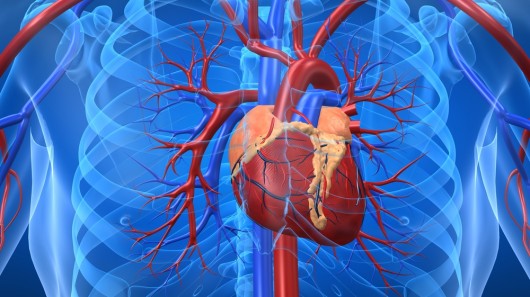
A new understanding of the immune system may be paving the way for the development of a vaccine for heart disease (Image: Shutterstock)
Most people probably know that plaque buildup in the arteries surrounding the heart is one of the major causes of heart disease. The reason that the plaque does accumulate, however, is often due to an inflammation of the artery walls. Recently, scientists from California’s La Jolla Institute for Allergy & Immunology were able to identify the type of immune cells responsible for that inflammation. With this knowledge in hand, they now hope to be able to develop a vaccine for heart disease.
Vascular immunology expert Dr. Klaus Ley led the research project, in which mouse models were used. He observed that the inflammation appeared to be the immune cells’ response to the presence of a protein that occurred naturally in the body – in other words, it appears to be an autoimmune disorder, in which a normal element of the body is mistaken as a foreign organism.
What’s more, the immune cells’ reaction suggests that they have a “memory” of having encountered the protein previously. “Immune memory is the underlying basis of successful vaccines,” said Dr. Ley. “This means that conceptually it becomes possible to consider the development of a vaccine for heart disease.”
He suggested that a “tolerogenic” vaccine could be created, which would cause the immune system to tolerate the the protein, instead of producing inflammation-causing antibodies. While such a vaccine could still be years away, Ley is nonetheless excited about the possibilities.
“If successful, a tolerogenic vaccine could stop the inflammation component of heart disease,” he stated. “This could probably be used in conjunction with the statins (cholesterol-lowering drugs) that have already taken a significant chunk out of the numbers of people with heart disease. Together, they could deliver a nice one-two punch that could be important in further reducing heart disease.”
A paper on the research was recently published in the Journal of Clinical Investigation.
Source: La Jolla Institute for Allergy & Immunology
About the AuthorCopyright © gizmag 2003 - 2012 To subscribe or visit go to: http://www.gizmag.com
